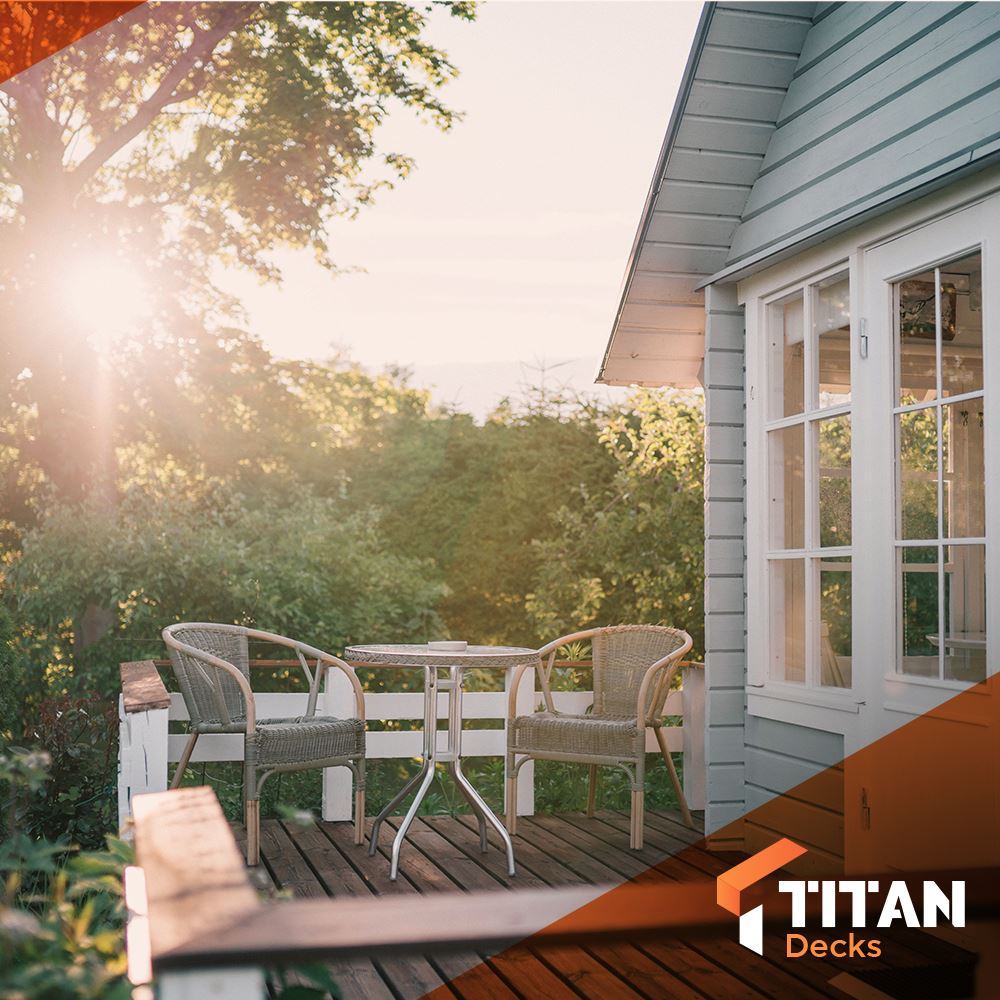Decks can get mold and mildew which can make the surface dangerously slippery. Composite decking is not impervious to mold any more than wood is. Learn how it forms on decks, and how you can prevent mold.
How Does Mold Form?
Mold is also known as mildew, algae, fungus, and other names. It’s a little microscopic floating organism that grows and spreads once it finds a food source. When talking about outdoor mold, the food source is generally fallen pollen or leaf debris. If the source is left too long, mold spores attack…and hey, they’re really hungry.
The mold finds a home in all the nooks and crannies of your deck and grows.
- Mold thrives in damp areas
- It needs pollen, dirt, and debris to grow
- It loves moderate temperatures
- Mold will “hibernate” when it gets cold, and become active once the weather warms
- It hides in shady areas
- Mold avoids full sunlight
Prevent Mold On Your Deck
The most effective preventative of mold growth is keeping your deck clear of debris. It’s not 100% guaranteed to keep mold at bay because it can be a sneaky little devil. But, if you make a weekly habit of sweeping and washing your composite or wood deck, you can slow down mold or mildew growth.
- Do not powerwash if your deck has a mold problem. It can stuff the mold further into those crevices and create a bigger problem.
- Use a cleaner if using a power washer.
- If at all possible, build a deck where it gets direct sunlight–ultraviolet rays are mold spore kryptonite.
- If possible, clear away trees or low-hanging branches
- Allow a gap between boards for irrigation and draining
Choose Composite Decking Materials To Avoid Mold
Decking materials are susceptible to mold if not properly treated. However, natural woods are more apt to collect those pesky spores because of the natural grain.
Composite materials, although they still can get mold, are a solid choice. They’re virtually immune to warping and splinters. Plus, bees don’t congregate and bugs won’t burrow. Those are two of the many other reasons to choose composite over wood, by the way!
However, since composite decking is made with wood by-products, mold does find opportunities to grow, especially if your deck isn’t appropriately maintained. With the right safeguards in place, you can have a mold-free deck that lasts a lifetime.
Call us today for your free in-home estimate for that composite deck you’ve been considering.
